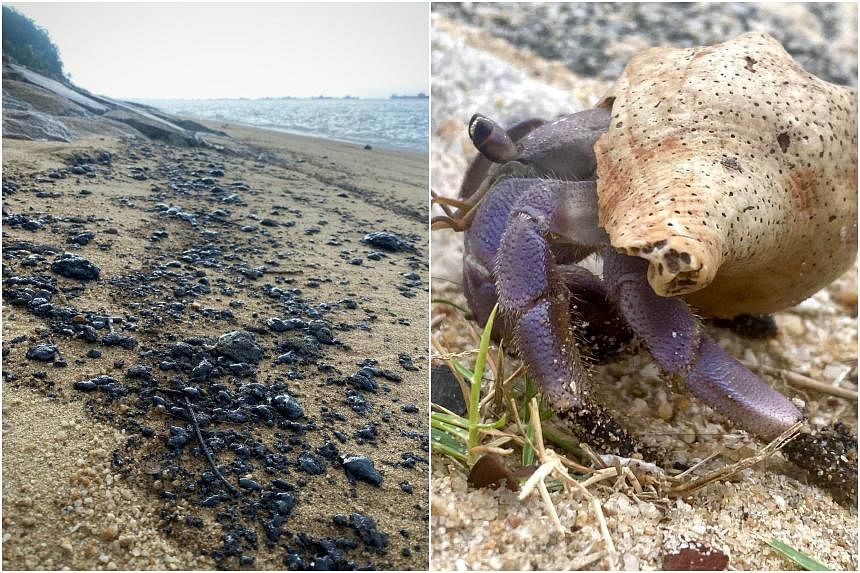- Joined
- Feb 26, 2019
- Messages
- 12,449
- Points
- 113
Oil slicks spotted on shores of East Coast Park

Christie Chiu and Aqil Hamzah
UPDATED
28 JUN 2023, 10:48 PM
SINGAPORE - Nature enthusiast Jay Yip was at East Coast Park on Tuesday morning hoping to spot some wildlife, but was instead greeted by the jarring sight of oil slicks on the shore.
“Each year, during some periods of the south-west monsoon, oil slicks arrive on our local shores, creating a sticky, black tarry mess,” said the 50-year-old educator in a post on Nature Society Singapore’s (NSS) Facebook page.
He spotted the slicks in front of Parkland Green, though a crew from the National Environment Agency (NEA) was seen cleaning up the area while Mr Yip was there. He told The Straits Times that the area has since been significantly cleaned up, with minimal traces of the oil left.
In response to queries, the Maritime and Port Authority of Singapore said it is aware of the oil slick along the beach at East Coast Park, but could not ascertain if it had originated from land or was swept into Singapore’s port waters due to prevailing tides.
It added that vessels here are subject to strict international and local regulations on the discharge of oil, and it is an offence for anyone to discharge any refuse, garbage, plastics or oil, and oily mixtures from ships in port into Singapore waters.
An NSS spokesman, meanwhile, said in response to queries that based on the photographs, the residue looked like crude oil or sludge.
He added that oil spills are a no-win situation and even after a cleanup operation, some residue will sink to the bottom of the sea and have a negative impact on seagrass, mangroves and coral reefs.He said: “We urge all the operators for oil-carrying vessels to exercise extreme vigilance to prevent any oil-spill incidents.”
However, Mr Ryan Lee, group director of the National Biodiversity Centre at the National Parks Board (NParks), said there is no significant environmental impact expected.
This is because the oil slick was not extensive and had been removed promptly, with intertidal habitats and shorelines being able to recover once the oil has been removed.
The next few high tides may see remnants of it being washed ashore, he said, adding that the public should avoid getting into the water if they observe such slicks along the beach.
If oil slicks are spotted along beach areas within parks, they should be reported to NParks on 1800-471-7300, or at www.nparks.gov.sg/feedback. The OneService app can also be used to make a report.
The Straits Times has contacted NEA for comment.
